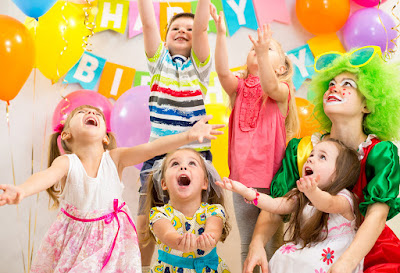7 Tips to assist kids Learn to regulate Their Emotions
All people worry regarding our youngsters learning to regulate their emotions. After all, it's emotions that therefore typically get United States of America off target and into hassle. And in fact we want to simply say No typically. youngsters cannot run into the road, throw their food at one another, or pee on their baby brother.
1. we have a tendency to model self-regulation. meaning we have a tendency to resist our own very little"tantrums" comparable to yelling. Instead, we have a tendency to take a parent time-out to calm ourselves down. If our kid is just too young for United States of America to go away the area, we have a tendency to do the maximum amount process at alternative times as we will, therefore we will keep additional calm whereas we're with our youngsters. Then, within the moment, we have a tendency to slow things down and take responsibility for the way we have a tendency to categorical our emotions. After all,
kids learn from United States of America. after we yell, they learn to yell. after we speak with all respect, they learn to talk with all respect. on every occasion you model ahead of your kid a way to stop yourself from acting once you are angry, your kid is learning emotional regulation.
2. we have a tendency to build it straightforward to speak regarding emotions. analysis shows that kids grow in emotional intelligence after we cite our own feelings, acknowledge theirs, and marvel aloud regarding those of alternative people: "That very little boy within the stroller is crying .... i ponder what is wrong? What does one assume he needs?"
Is it necessary to show youngsters words for his or her emotions? affirmative, it validates their expertise and helps them perceive others. however labeling emotions once tempers rage simply makes the kid feel analyzed, and talking of any kind takes the kid out of her heart and into her head, that makes it tougher to figure through the sentiments. Instead, in those powerful moments, specialize in merely accept your
child's emotions and providing compassion, albeit you would like to limit your child's actions.
3. we have a tendency to rank a deep nurturing affiliation. Babies grow the neural wiring to appease themselves by being soothed by their folks. however even older kids got to feel connected to United States of America or they can not regulate themselves showing emotion. after we notice our kid obtaining regulated, the foremost necessary factor we will do (after calming ourselves) is to do to reconnect. Once youngsters feel that we're on their aspect, even after we got to say no to them, they require to work -- so heat, delighted affiliation eliminates a great deal of "misbehavior.

4. we have a tendency to settle for our child's feelings, even once they are inconvenient (as feelings typically are). "Oh, Sweetie, i do know that is unsatisfactory....I'm therefore sorry things did not total the manner you wished." once fellow feeling becomes our "go to" response,
our kid learns that emotions might not feel sensible, however they are not dangerous, therefore she accepts and processes them as they are available up, rather than stuffing them, wherever they solely get uglier. She is aware of somebody understands, therefore she does not ought to yell to be detected. And once our support helps her learn that can pass through dangerous feelings and therefore the sun will take off succeeding day, she begins to develop resilience.
5. we have a tendency to guide behavior however resist the urge to penalize. Spankings, time outs, consequences, and shaming do not offer youngsters the assistance they have with their emotions. In fact, the message youngsters get is that the emotions that drove them to "misbehave" are dangerous. Therefore youngsters attempt to repress those emotions, and their
emotional backpack gets stuffed even additional packed with dangerous feelings. that is one among st the explanations that penalization really ends up in additional misbehavior -- those feelings keep effervescent up out of the emotional backpack trying to find healing, and your kid lashes out as a result of the emotions feel therefore alarming. rather than backbreaking, facilitate your kid be track with imitative steerage and feeling coaching job to assist them method emotions.
6. we have a tendency to limit our child's actions as necessary, even whereas we have a tendency to facilitate the kid feel safe enough to feel the emotions. in fact your kid is not nevertheless capable of creating all his own selections in life, even once he is thinking well. once he is angry, it isn't stunning that he will and says things he'll be compassionate later. (Don't you?) Your
angry kid isn't a foul person, however a pain, terribly young human. once youngsters are not dominant their emotions, it's as a result of they can not, at that moment. this can be not the time to show him to not be rude. If you'll keep compassionate, your kid can feel safe enough to surface, feel and categorical the tears and fears that are driving his anger and acting out. If you'll facilitate him feel safe enough to really feel those tears and fears, they can evaporate -- and therefore the anger and acting out will vanish, too.
7. we have a tendency to act just like the grown-up. after we are not ready to head in our home, setting acceptable limits and making a positive tone, youngsters do not feel safe. They worry that we have a tendency to are not ready to meet their emotional desires, so that they begin operating onerous to require charge themselves. that is one reason kids get domineering and hard-to-please. Even worse for his or her development, they stop returning to United States of America with their tears and fears. they do not trust United States of America with their vulnerability.
Read more :
www.handlingemotions.incontact us : +91 9644175979










